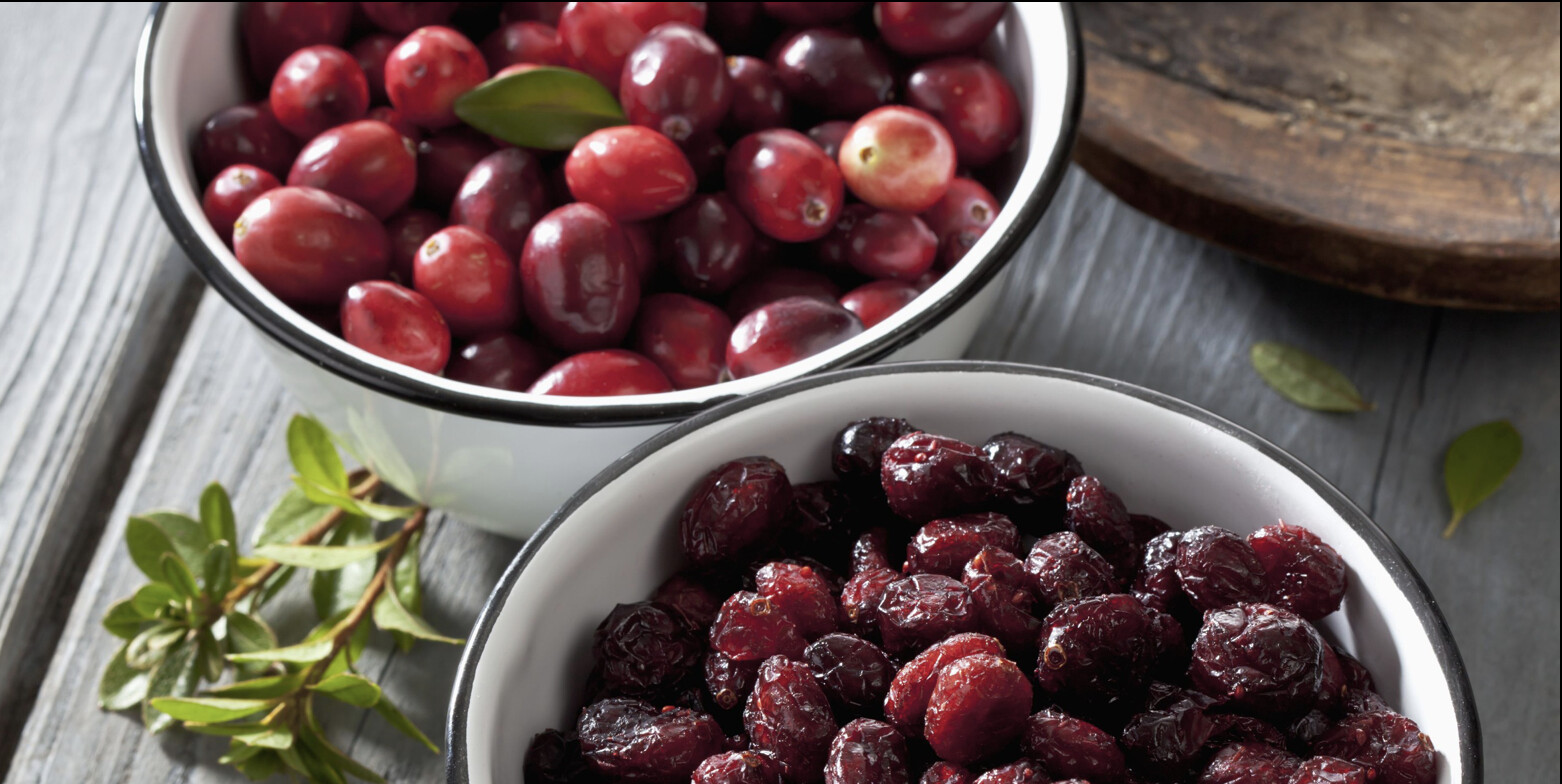Running News Daily
Running News Daily is edited by Bob Anderson. Send your news items to bob@mybestruns.com Advertising opportunities available. Train the Kenyan Way at KATA Kenya and Portugal owned and operated by Bob Anderson. Be sure to catch our movie A Long Run the movie KATA Running Camps and KATA Potato Farms - 31 now open in Kenya! https://kata.ke/
Index to Daily Posts · Sign Up For Updates · Run The World Feed
Cranberries Can Prevent UTIs, Support Performance, and Offer More Health-Boosting Benefits
This holiday staple offers more than festive flare.
If you’re only eating cranberries once a year, you’re missing out on a wide array of nutrients and creative dishes. Cranberries have adorned Thanksgiving and holiday tables for hundreds of years. But this naturally tart red berry has many culinary uses. Plus, cranberries are packed with vitamins, minerals, and antioxidants and have been shown to improve heart health, reduce inflammation, and may even enhance performance.

Not to mention that cranberries come in several forms—fresh, dried, and juiced—so you have multiple ways to add them to your diet.
Here, everything to know about cranberries’ benefits, including just how easy they are to add to your plate.
What nutrients will you get from cranberries?
Fresh cranberries are a good source of vitamin K and an excellent source of fiber and vitamin C. Beyond the nutrition label, they also have polyphenols or plant compounds that have been studied for their beneficial role in many health conditions.
According to the USDA, one cup of fresh, whole cranberries has:
46 calories
0.5 g protein
<1 g total fat
12 g carbohydrates
4 g fiber
4 g sugar
14 mg vitamin C
8 mg calcium
80 mg potassium
What are the health benefits of cranberries?
The Dietary Guidelines for Americans recommend two servings of fruit per day, thanks to the plethora of nutrients they offer. Cranberries, in particular, have been studied for their health properties, including these benefits:
1. They can lower your risk of chronic disease
“Cranberries are loaded with antioxidants, so they help defend your body against oxidative stress,” says Samantha Cassetty, MS, RD, plant-focused nutrition and wellness expert and co-author of Sugar Shock. Oxidative stress occurs when free radicals (cell-damaging compounds) outnumber antioxidants in the body.
Research links excessive oxidative stress to chronic conditions, including heart disease, type 2 diabetes, cognitive decline, and cancer. Recent research has found that eating cranberries boosts the antioxidant effect in the body and may fend off these conditions. “When you consume antioxidant-rich foods like cranberries, it helps to correct the imbalance [of free radicals],” adds Cassetty. The same research also points out the anti-inflammatory properties of cranberries—another important component of disease prevention.
2. They benefit your heart
“Cranberries provide numerous cardiovascular benefits,” says Lauren Harris-Pincus, MS, RDN, founder of NutritionStarringYOU.com and author of The Everything Easy Pre-Diabetes Cookbook . An abundance of research suggests that berries, in general, reduce (bad) LDL cholesterol, triglyceries and blood pressure, while increasing (good) HDL cholesterol.
“Additionally, cranberries may help improve the flexibility of your arteries,” says Cassetty. “When arteries become stiff, it can lead to high blood pressure.” The research suggests that cranberries can improve several risk factors for heart disease.
3. They prevent urinary tract infections
You’ve probably heard that cranberry juice can treat a urinary tract infection (UTI). While that’s not necessarily the case, cranberries have been studied for their role in urinary tract health. “Cranberries naturally contain the flavonoid, proanthocyanidin (PAC),” says Harris-Pincus. And it’s this flavonoid that likely blocks the buildup of bacteria and helps to prevent urinary tract infections.
A meta-analysis involving 23 studies and more than 3,900 participants backs up the claim that cranberries can help prevent UTIs in susceptible populations. The study found that those who drank cranberry juice had the biggest reduction in risk of UTIs, compared to those who took a capsule or tablet. In other words, having cranberries in your diet may stop UTIs before they start.
4. They may contribute to a healthy gut microbiome
“A growing body of [new] research suggests that the use of cranberries as part of a healthy diet can help maintain a beneficial population of gut microbiota,” says Harris-Pincus. Small studies in humans and animals show that eating cranberries may alter the gut microbiome in a positive way.
“Your microbiome regulates immune function, inflammation, cholesterol, blood sugar levels and mood, so it pays off when you have a healthy microbiome,” says Cassetty. Yet, more research is definitely needed before making general recommendations about cranberries and the microbiome.
5. They can support endurance performance
Fueling before a run is crucial for maximizing performance, and dried cranberries may be the perfect prerun snack. Packed with easy-to-digest carbohydrates (they have added sugar to improve palatability), they offer up energy for your muscles to maintain long miles.
In addition, the inflammation-fighting compounds in cranberries may help athletes recover faster.
The research on cranberries in the athletic population is lacking, but one study in rowers did find that supplementing with cranberry extract increased postexercise levels of antioxidants in the blood. This is important because strenuous physical activity can raise oxidative stress, and antioxidants can bring it down, as mentioned earlier.
How to add cranberries to your meals
“Cranberries are amazing because of their culinary versatility,” says Harris-Pincus. “Fresh, frozen, and dried cranberries are tasty assets to both sweet and savory dishes,” she adds. Here are some simple ways to add cranberries to your diet, from Cassetty and Harris-Pincus:
Bake cranberries into quickbreads, muffins, pancakes, and crumbles, because the sugar in the baked good will balance the tartness of the berries.
Use dried cranberries in nutritious dishes, like salads, roasted veggies, and grain-based bowls.
Add dried cranberries to a homemade trail mix made with popcorn and nuts.
Include fresh cranberries in baked oatmeal with a dash of maple syrup.
Create a cranberry compote in the microwave with fresh berries, water, your choice of sweetener and citrus. Enjoy it on waffles, pancakes, crepes, oatmeal, or as a sandwich spread.
Drop a few cranberries in a glass of champagne for a healthy garnish.
Add 1 to 2 tablespoons of cranberry juice to your favorite vinaigrette recipe for a tart pink dressing.
Replace the raisins with dried cranberries in your favorite childhood snack, peanut butter over celery, and make “red ants on a log.”
Combine cranberries with sweet potatoes and drizzle with maple syrup and olive oil. Roast for 30 minutes for a sweet and sour side dish.
The bottom line on the benefits of cranberries
Cranberries are affordable, versatile, and underutilized. Not only are they pretty to look at, but they are also good for your health. Whether you like them fresh, dried, or juiced, cranberries are worth adding to your meals. Incorporate them during heavy training seasons to get an added antioxidant boost.
by Runner’s World
Login to leave a comment




